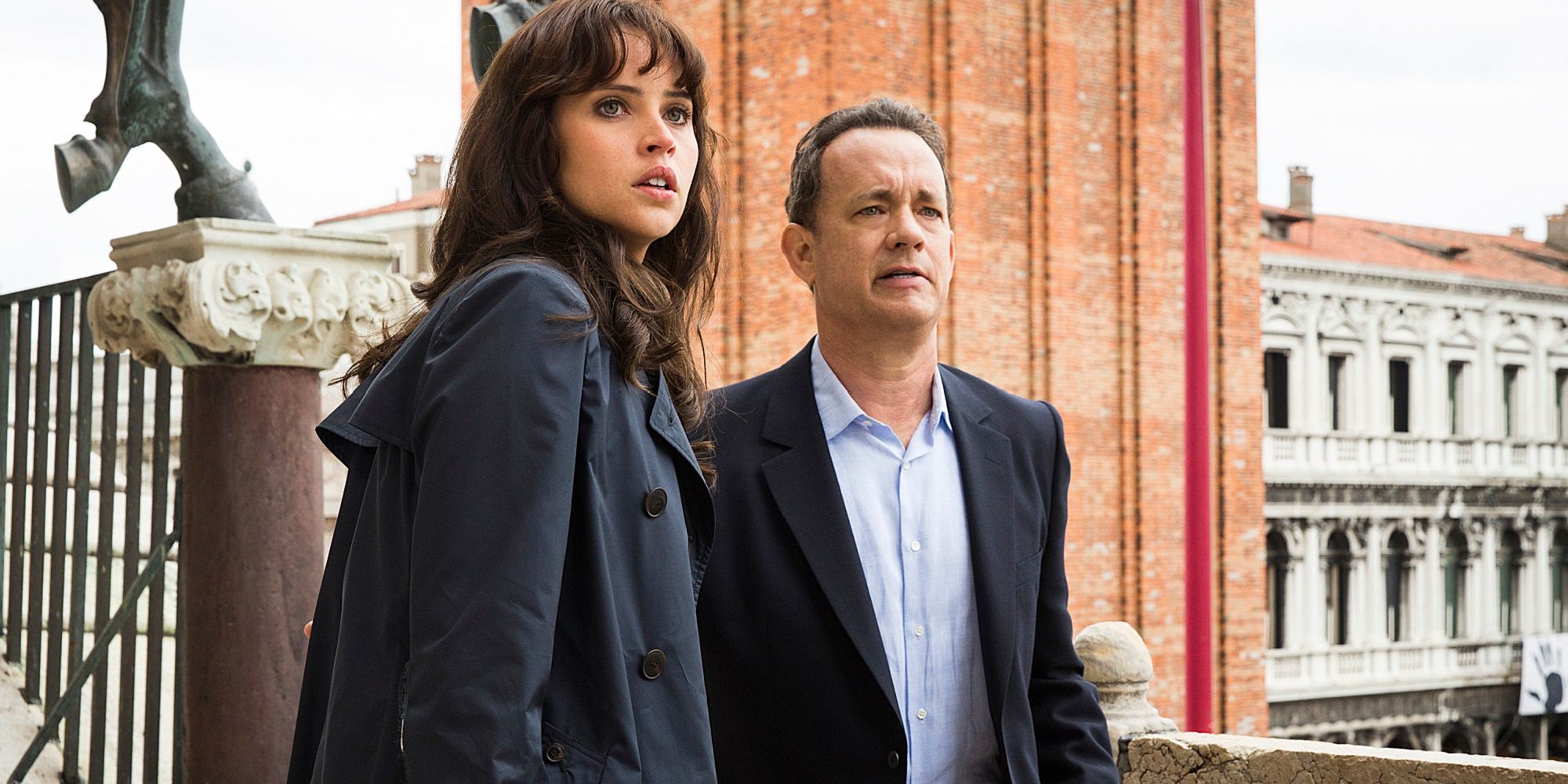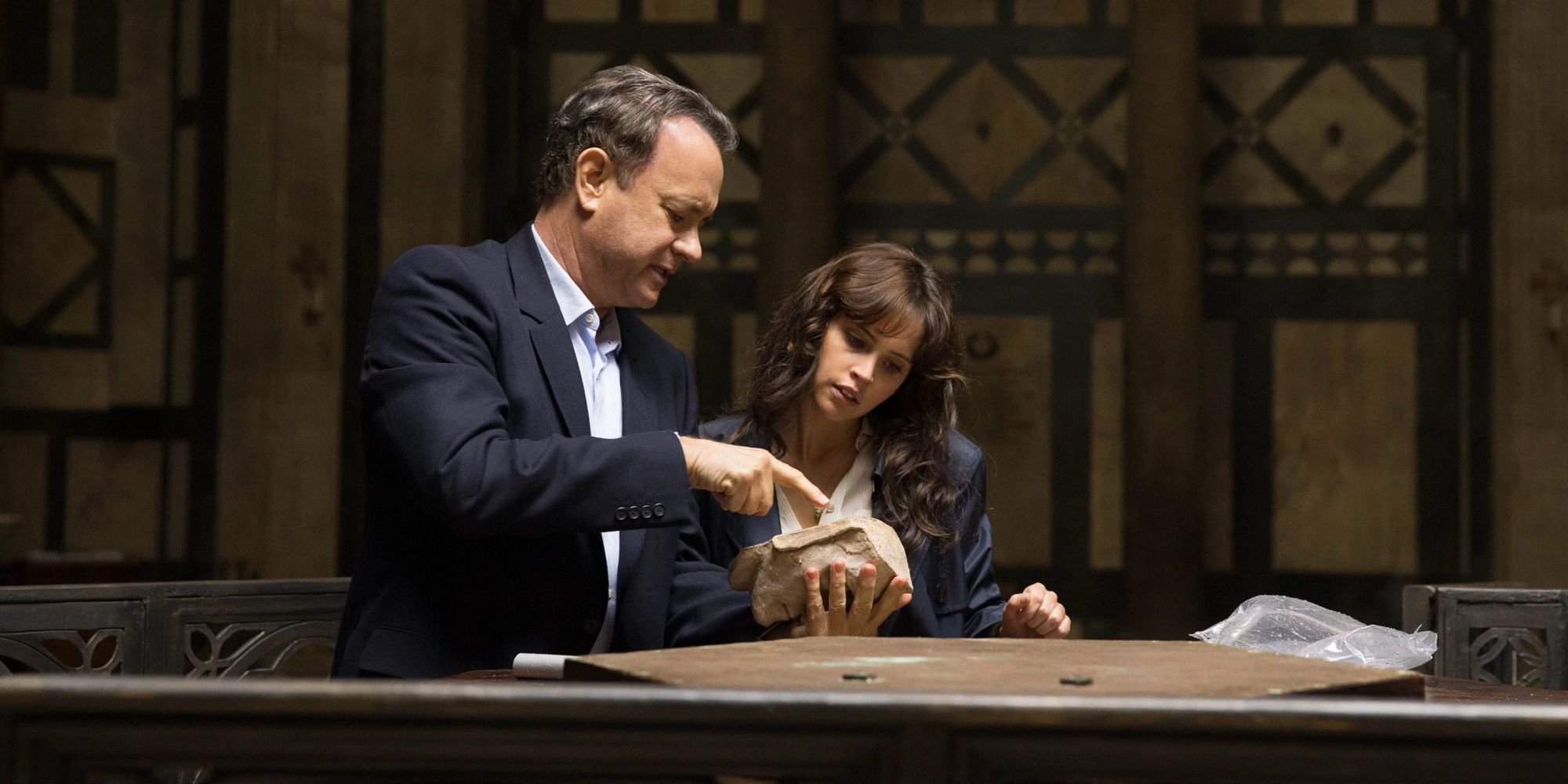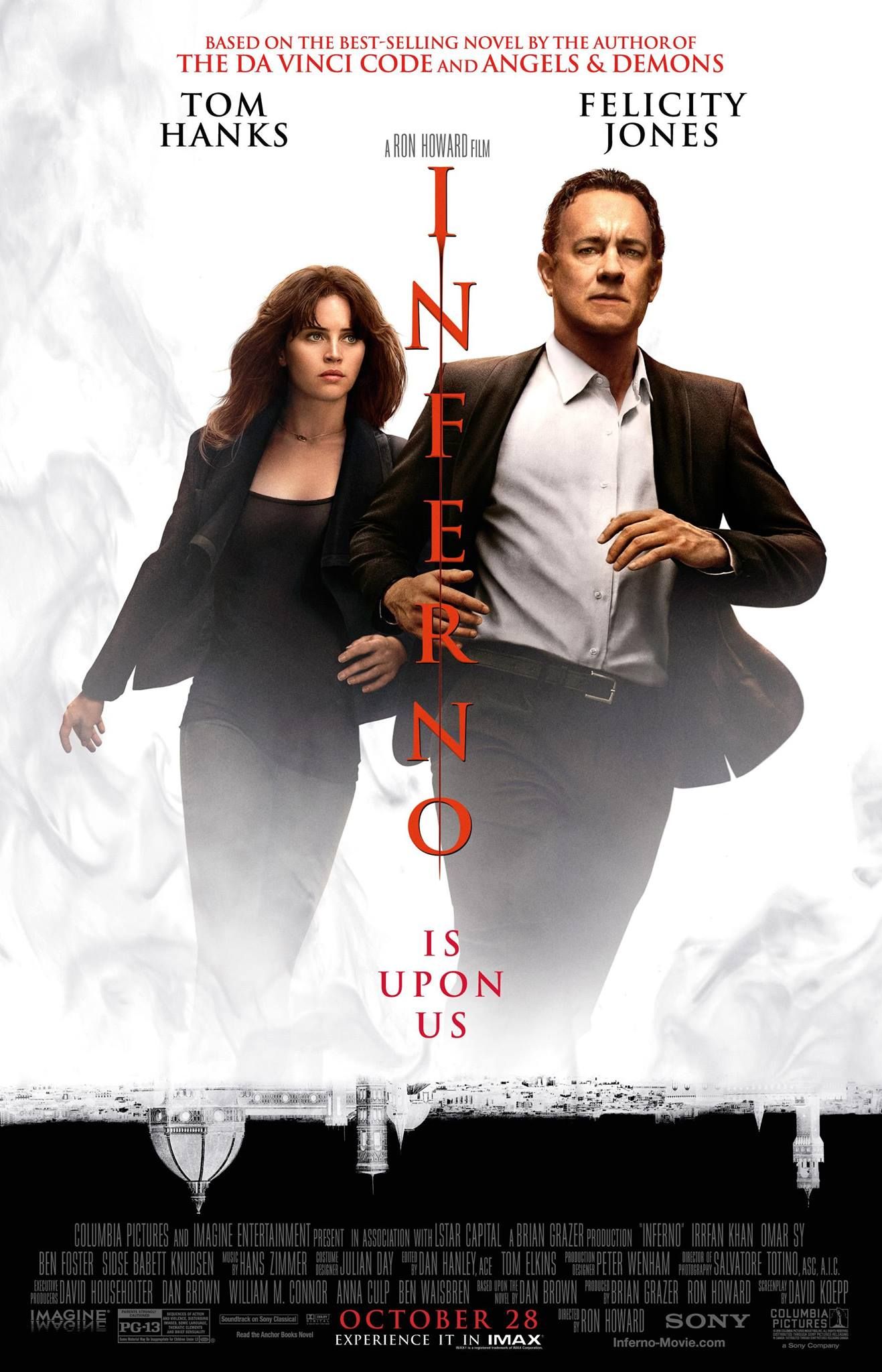Warning: This interview contains SPOILERS for Inferno
To describe Felicity Jones as accomplished would be a bit of an understatement. Since her first on-screen role in an adaptation of E. Nesbit's The Treasure Seekers in 1996, Jones has only slowed her acting career down for long enough to obtain a degree from Oxford University, after which she jumped right back into TV and film. This year alone sees the release of four movies with Jones in leading roles: upcoming Star Wars adventure Rogue One; action thriller Collide; an adaptation of Patrick Ness' children's novel A Monster Calls; and the latest Robert Langdon mystery thriller from director Ron Howard - Inferno.
In the latter film, which makes its U.S. debut this weekend, Jones plays an ER doctor called Sienna Brooks who is caught up in Langdon's latest adventure after he lands in the hospital with a head wound and amnesia. Soon, Sienna and Robert find themselves racing against time to prevent the release of a virus that is deadly and contagious enough to wipe out half the population of the planet. The virus is the invention of Bertrand Zobrist (Ben Foster), a scientist obsessed with trying to save the world from overpopulation, who committed suicide and left behind just one clue: a modified version of Botticelli's map of Hell, based on Dante Alighieri's Inferno.
Screen Rant recently visited Florence for the world premiere of Inferno, and before hitting the red carpet we got a chance to speak with Jones about her role. Check out the interview above, and a transcript below.
Screen Rant: The movie presents us with an interesting moral dilemma, which is, say the human race is going to die out in a hundred years, and you can prevent it by killing half of the human race. What do you think of that, and if you had to pick one... which do you think would be the best?
Felicity Jones: I think it's not advisable to do what Zobrist and Sienna do in the film. I think it's not a matter than people should take into their hands individually. I think that's definitely in the realms of movie-making and entertainment.
SR: It's better as a hypothetical.
FJ: Yeah, exactly, exactly.
SR: It seems like Zobrist's motivations are not such about saving human lives as they are about creating a legacy for himself. He compares it to the Renaissance, because the Black Death led into that. What do you think about the idea of art as a legacy?
FJ: Well, ideally the legacy you want to leave is through art and not through mass destruction. [Laughs]
SR: Not killing billions of people.
FJ: [Laughing] Exactly, exactly. I think his idea of legacy is a little bit warped.
SR: Was most of the film filmed here in Florence, or was there some in-studio?
FJ: We were in Florence for the initial part of the shoot, for about a week and a half, and so you enjoy every single moment because you know that you're going to be in a studio for a very long time and you're never going to see the daylight, so you make the most of every minute, trying to go and see pieces of artwork or go to museums or make the most of being in these incredible locations.
SR: You got very up close to some of the museums.
FJ: Yeah, yeah, well it was great, we went to the Uffizi [Gallery], they have a whole room devoted to Botticelli, and I've always loved his work, so getting to see it for real was a real perk of the job.
SR: In the book, Sienna has not the best relationship with her own intellect. It talks about how as a child she studied anatomy to try and figure out what was wrong with her brain. Did any of that - it seems like the character is a bit more confident in the movie, but did any of that inform your performance?
FJ: Yes, it's trying - as much as you can - stay true to the essence of the book, but also you want to make it your own when it comes to the screen, and there are shifts and changes, obviously, from a book to a screenplay. But as much as possible I wanted to be true to Sienna's origins, absolutely.
SR: And do you think that relates to... are you we allowed to talk about the relationship with Zobrist?
FJ: I think so.
SR: How do you think [Sienna] feels about Zobrist's plans, his intentions?
FJ: I think it's a moment where two individuals meet who both have a similar ideology, and it's a dangerous meeting because they're both incredibly focused people, incredibly bright, and unfortunately they use those brains to quite disastrous consequences.
SR: Would you characterize Sienna as being a follower, do you think she's suckered into a cult mentality, or do you think she's almost the driving force behind this plan.
FJ: I say 100% she's the driving force. [Laughs] I feel like the character is rooted in good intentions, and that's what is interesting about the film, is that you get to see the motives of everyone, and they're not clearly goodies and baddies. And actually, originally she does have quite good intentions, they just slightly derailed...
SR: Into partial genocide.
FJ: [Laughs] Yeah, yeah, exactly. For the needs of entertainment.
SR: Finally, bringing it back round to this idea of art as a legacy, what does that mean to you as an actor. Do you create films with legacy in mind?
FJ: Not consciously, but there's definitely something going on when you're going and shooting every day. I think there is a very particular tension that arises from knowing that you're making something that will potentially last forever, so you make sure you try and do the best job you possible can.



